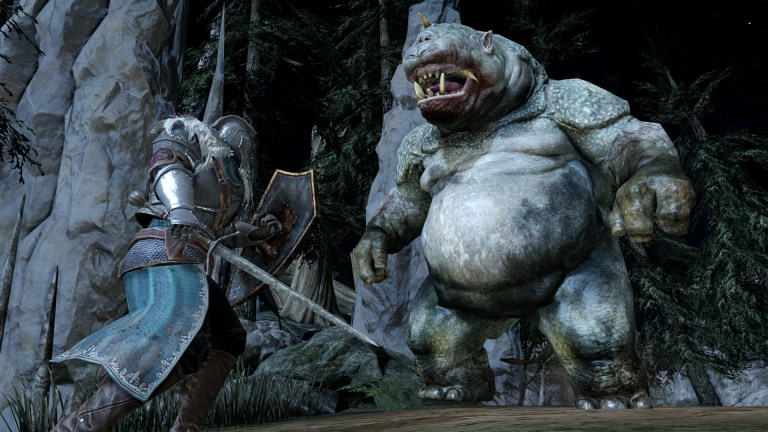10 Years Later, Dark Souls 2 Finally Gets the Respect It Deserves
FromSoftware's Hidetaka Miyazaki explains how the divisive Dark Souls 2 paved the way for Elden Ring.

In an interview with IGN, Elden Ring director Hidetaka Miyazaki reflected on the 2022 Game of the Year. To the surprise of many, Miyazaki reveals that he attributes part of Elden Ring’s success to a seemingly unlikely source: 2014’s Dark Souls 2.
“In regards to Dark Souls 2, I actually personally think this was a really great project for us, and I think without it, we wouldn’t have had a lot of the connections and a lot of the ideas that went forward and carried the rest of the series,” Miyazaki says. “We were able to have that different impetus and have those different ideas and make those different connections that we otherwise might not have had…there’s really no way of telling how or if the series would have continued the way it did without Dark Souls 2.”
It’s a notable bit of praise that comes almost exactly 10 years after Dark Souls 2’s debut. During that time, Dark Souls 2 solidified its reputation as one of the most divisive games ever. Dark Souls 2‘s critics bemoaned its level design, combat system changes, overwhelming number of bosses, increased “cheapness,” modified health loss/health gain systems, and many, many more elements of the experience. Even those who generally liked the game were forced to concede that it deviated from many of the things that made Dark Souls successful.
So why is Miyazaki praising it in this context? Well, it’s because Dark Souls 2‘s changes influenced Elden Ring in some obvious and notable ways. That sequel’s sprawling level design may have upset those who loved Dark Souls’ more Metroidvania-like layout, but it also feels like an early attempt at what eventually became Elden Ring’s open world. Even Dark Souls 2’s expanded roster of bosses now feels like a trial run to how Elden Ring spreads those encounters throughout its world, and Elden Ring’s combat and build options revived numerous Dark Souls 2 concepts (most notably, the beloved “Powerstancing” tactic).
But what Miyazaki is really talking about here is the thing that many Dark Souls 2 fans (and some critics) have long praised the game for: its willingness to be truly different and experiment with quite a few new ideas.
Why was Dark Souls 2 so different? Well, it’s mostly because it’s the only Souls game that Hidetaka Miyazaki did not direct. That honor instead fell to Tomohiro Shibuya and Yui Tanimura who proceeded to play with quite a few new ideas that felt closer to their visions. Though Dark Souls 2 retained many of Dark Souls’ core genre concepts (and Miyazaki still oversaw the development of the game as a supervisor), Dark Souls 2 was always designed to be different.
Indeed, Miyazaki has made it clear that he would like to see more people direct more FromSoftware games in the future. Though he’s certainly not retiring, he is preparing fans for a world in which things may continue to be a bit different. In that respect alone, it’s pretty clear why Miyazaki finds himself thinking of Dark Souls 2 as of late.
His statements feel like more than that, though. They feel like official and crucial validation for a game that has never deserved the unquestioned love that some like to argue it deserves but has always deserved quite a lot of the respect it’s often been denied.
In a risk-averse industry where budgets are too big for games to be anything less than a blockbuster, there is no greater showcase of power and vision than a studio that is willing to try something different. Sometimes, those efforts result in Dark Souls 2: a game that plays with the formula and feels unpolished because of it. Sometimes, we end up with something much worse.
Yet, if you are one of the millions who enjoy games like Elden Ring as more than just a great experience but as a breath of fresh air in an increasingly stagnant atmosphere, then you too must acknowledge the importance of games like Dark Souls 2. It’s rarely cited as anyone’s favorite FromSoftware game, but it perfectly represents the spirit that makes that studio great.
